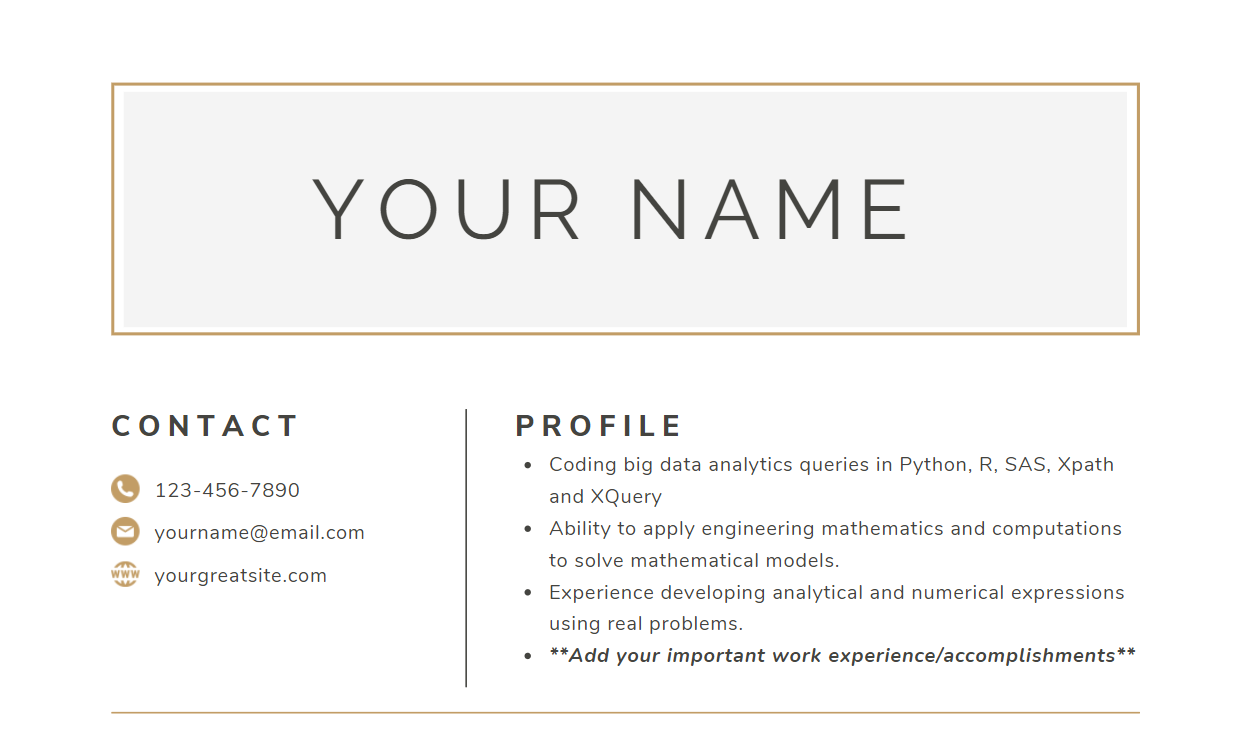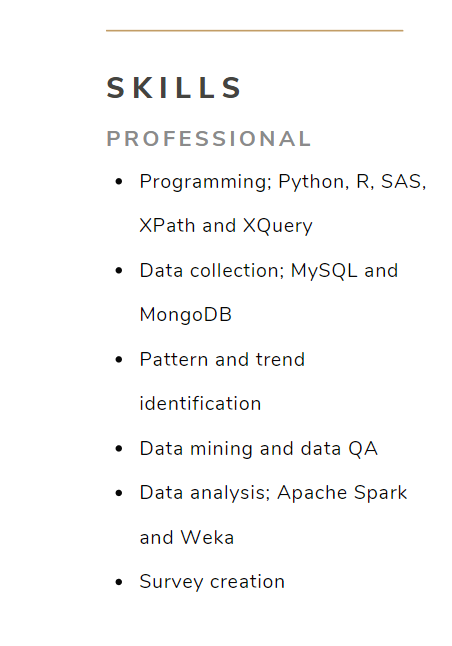How To Incorporate Your Certificate Into Your Resume

August 24, 2021
So you’ve taken a certificate—you learned a lot, made great professional connections, developed applicable skills—but how do you showcase that on your resume beyond slapping it on the education section? How do you fully tell your story on your resume to feature all the momentous work you did, the useful knowledge you’ve acquired, and the practical skills you’ve picked up?
Read on to see how you can showcase your certificate on your resume to show hiring managers the superstar that you are.
Your Profile
Yes, you should be talking about your certificate in your profile. It’s at the very top of your resume and the first thing employers see. The profile section of your resume is your opportunity to show an employer, at a glance, why you’re qualified for the job. This is the space to highlight your accomplishments and skills you’ve obtained via your certificate. Think of the profile section as answering “who you are” and why you are so amazing.
For example, if you took our Certificate in Data Analytics, Big Data, and Predictive Analytics, you could add the following points:
- Coding big data analytics queries in Python, R, SQL, NoSQL, and more.
- Ability to apply engineering mathematics and computations to solve mathematical models.
- Experience developing analytical and numerical expressions using real problems.
- Plus important work experience/accomplishments
Here’s what this profile could look like mocked up:

Your Skills
The skills section of your resume answers “what you can do” in an easy-to-digest list. This is the perfect place to point out the competencies you gained from your courses. A great skills section includes your abilities related to the jobs you’re applying for. Depending on the job, you can list out your computer and software skills, and/or communication skills.
Again, using the Data Analytics/Big Data as an example, you could list out some of the hard skills you’ve gained like:

Skills listed are:
- Programming; Python, R, SAS, XPath and XQuery
- Data collection; MySQL and MongoDB
- Pattern and trend identification
- Data mining and data QA
- Data analysis; Apache Spark and Weka
- Survey creation
Your Experience
Now you’re getting to the meat of it. In the experience section you can really go into things, answering the “how” — providing context around your experience and the results you brought about thanks to your incredible skills and knowledge.
Even though the experience you’ve acquired from your certificate is not traditional work, you can still include it in this section as long as it is relevant to the jobs you’re applying for. You could include a major project you worked on or even a volunteer, pro-bono project you did as part of your certificate work. You can even title this section “Relevant Experience” so that a non-job inclusion doesn’t seem misplaced.
As you start drafting out this section, keep in mind a few things:
- Only include information that an employer will care about — if a bullet point doesn’t relate to the job, it probably doesn’t need to be included.
- When describing your experience, be sure to pepper in some of the keywords used in the job application itself (but don’t go overboard!).
- Include any measurable results to show your impact — success metrics really help sell the story of why they should hire you.
Your Education
You knew this section was coming. While you can’t list that free training you received from watching a YouTube series, you can include your certificate to show hiring managers what you’re doing to keep your skills fresh. Don’t just type out the certificate you took and the school name — you have an amazing story to tell about your education and shouldn’t sell yourself short! You can point out specific courses that would be highly relevant to the job application, mention important projects you worked on or any competitions you may have won during your schooling.
We know writing a resume isn’t the most exciting activity in the world, but it does get a bit easier once you know how to position yourself as the best candidate, properly tell your unique story, and present all the hard work you accomplished in your certificate.
Learn more about our Certificate in Data Analytics, Big Data, and Predictive Analytics
